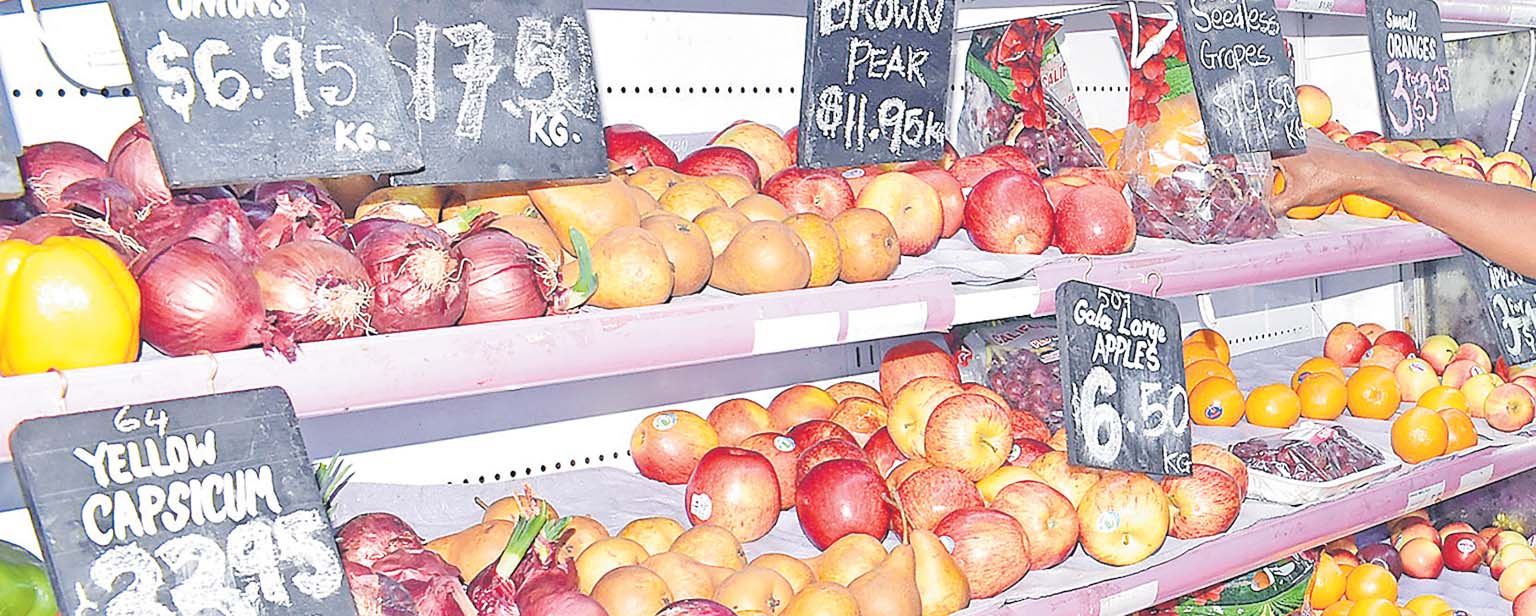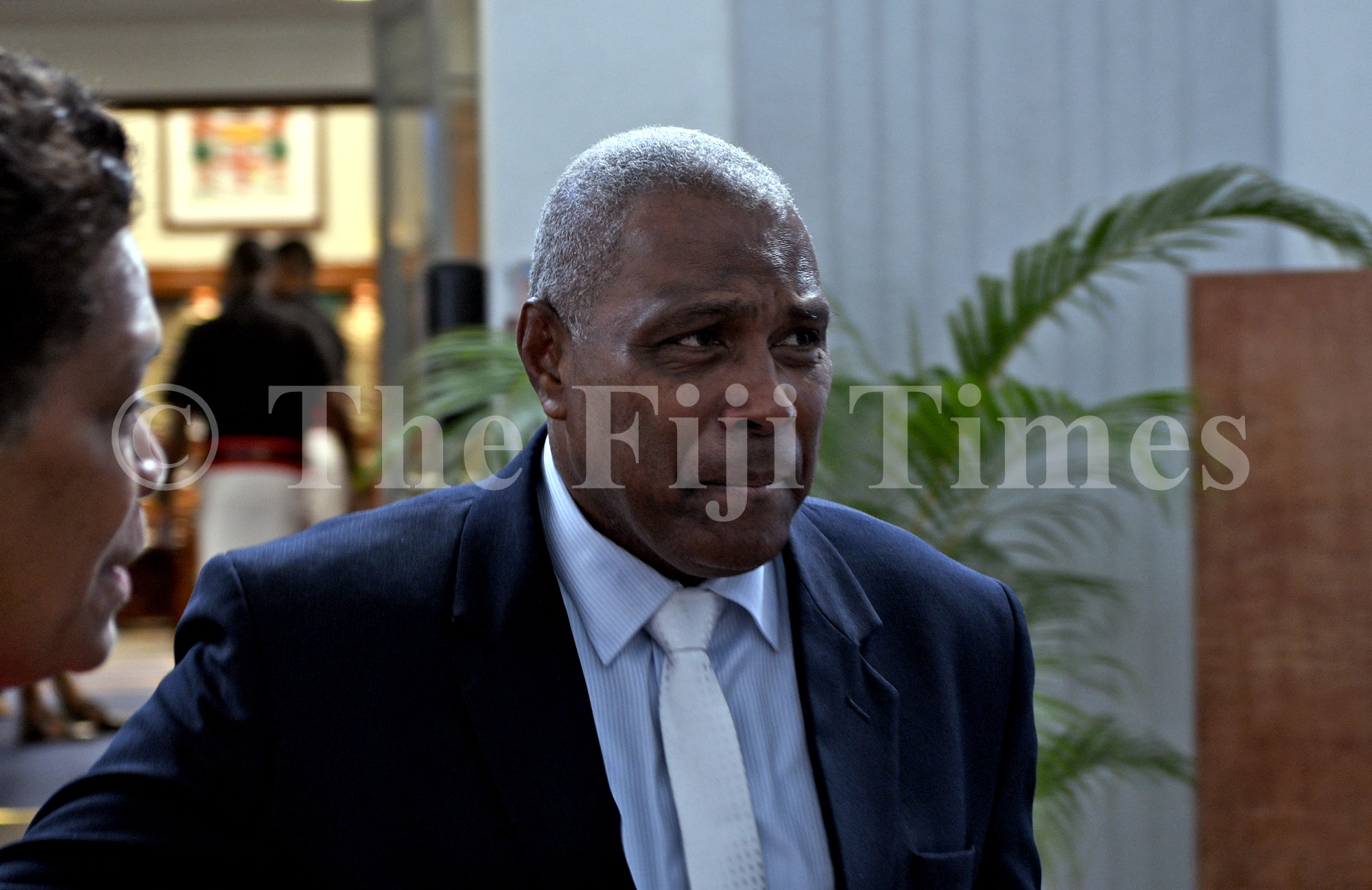Last week, I discussed how fiscal consolidation measures such as tax hikes and spending cuts could potentially be detrimental to an economy that is on a recovery path following a major economic crisis, and with dynamics such as Fiji’s.
I had stated that there are other measures such as broadening the tax base, increasing spending efficiency and reducing wasteful subsides that can set us on a sustainable fiscal consolidation journey that can bring fiscal stability in the medium to long term. This week, I will explore these further (albeit not fully).
Taxation
In the 2020-21 budget, the government announced several measures to stimulate economic activity, support tourism and local demand which involved a significant reduction in tax revenues.
These included– reducing fiscal and excise duties on over 1600 items to either 0 per cent or 5 per cent, removing service turnover tax (from 6 per cent to 0 per cent), reducing environmental and climate adaptation levy (ECAL) from 10 per cent to 5 per cent, reducing excise duty on alcohol by 50 per cent, reducing departure tax from $200 to $100 and removing stamp duties.

Table 1 shows a comparison of the pre-pandemic (FY2018-19) actuals for these revenue lines, against the projected income for FY2022-23 to show how these reductions impact government’s operating revenue (inflation is not accounted for).
Most of these tax cuts benefit the tourism sector and were aimed at increasing the competitiveness of the sector. It would, however, be very interesting to find out if pricing at our tourism facilities have indeed become competitive as tourist numbers rebound.
The most effective way to tax tourism operators is through indirect taxes, and, in a country where most operators are foreign and siphon off profits from the economy, it makes sense to adequately tax tourism transactions to enable government to retain and redistributive the country’s tourism earnings.
The $100 odd million that would be earned by government increasing incomes taxes or lowering the tax threshold can easily be made up for through re-introducing STT and increasing the departure tax.
It is, however, important to increase the departure tax by small increments to protect our national airline, which has taken a battering in recent years, as increases in departure tax tend to hurt airlines.
In addition, having multiple VAT rates should be reconsidered, especially the zero-rated VAT on basic food items. This tax regime can be considered regressive as it disproportionately benefits the wealthy.
For example, during a shopping trip, a person from a low-income household may purchase a kilogram of potatoes for $3 and receive a government subsidy of 30 cents on VAT while a wealthy individual may purchase three kilograms of potatoes and benefit from a government subsidy of 90 cents on VAT.
Such measures intended to provide relief to low-income households through VAT subsidies disproportionately benefit the wealthy, undermining the policy’s intended impact. It is suggested that the government consider a single VAT rate of 10 per cent or 11 per cent (at most), as opposed to a three-tier VAT system.
This will not only simplify the tax system but will also reduce the regressive nature of the current system. The government should focus on providing targeted assistance to low-income households rather than subsidising VAT on basic food items.
Such an approach will enable the government to support the people who need it most while maintaining a fair tax system.
Therefore, I suggest that instead of increasing direct taxes, which constitute only around 20 per cent of government’s total operating revenue anyway, restoring indirect taxes on tourism related transactions, and relooking at VAT structure will result in a positive impact on government’s revenue, without causing undue hardship to vulnerable individuals and businesses.
In addition to these, increasing tax compliance and improving tax administration must remain an ongoing aspiration.
Spending efficiency
Whilst we have accumulated a sizeable public debt, there is debate about whether the productive sectors of our economy have expanded proportionally.
A key reason for a developing state to deliver deficit (expansionary/ stimulus) budgets is to expand its productive capacity.
Wasteful expenditure, coupled with populist policies have, however, had a negative impact on our ability to derive maximum benefits from the state’s spending in our recent past. It is apparent that, under the previous administration, a culture of wasteful expenditure of taxpayer money was pervasive- from paying exorbitant salaries to executives of statutory entities to awarding tenders for infrastructure projects at uncompetitive prices.
In addition, there were expenditure that could hardly be justified especially when others which should reasonably have been higher priority were ignored. An example is the state investment in the media sector.
Sizeable transfers of public money were made to entities such as FBC and Walesi which distorted the media market, making it difficult for private players to fairly compete and expand. While a significant proportion of our people languished in poverty and patients in public hospitals lay in atrocious conditions, the government subsidised live TV coverage of the FIFA World Cup and other expensive events, a luxury that even developed countries did not provide their people.
The centralisation of broadcast capacity with Walesi did not only mean that transmission infrastructure developed through private investment became obsolete, but it also increased the risk of broadcast blackouts during cyclones and other natural disasters if Walesi transmitters became dysfunctional.
These unnecessary expenditures in building state-owned broadcast infrastructure, when the private sector was perfectly capable of doing so, and in an age where the future of TV and radio is in limbo, are difficult to justify or explain.
That being said, the state has invested heavily into this, and the government will need to continue to make transfers to FBC and Walesi, to ensure that the value of these assets is not eroded. In the case of FBC, sizeable transfers of public money are necessary to enable it to continue its loan repayments to FDB, until the debt is paid off. These are unproductive expenditures that are unavoidable due to existing undertakings.
However, they provide good lessons for the future. The new government will, therefore, need to establish high standards of fiscal discipline to curtail the culture of wasteful spending which appears to have taken root.
There has been a noticeable increase in the number of official public ceremonies and overseas travel for government ministers and delegations, in the still nascent reign of the new government, and if uncontrolled, this can significantly contribute to unproductive operational expenditure.
Expenditure priorities need to be set. The withholding of transfers to entities such as FRA, for example, will not just impact negatively on the capex-opex ratio (which has significantly improved in recent years) but also cause huge losses by resulting in costly damages to expensive infrastructure, which would have to be borne eventually.
Rationalising expenditure, therefore, to maximize the value of resources by prioritising spending and minimizing waste, will be necessary.
Concluding remarks
The key to fiscal consolidation does not just lie in increasing government revenue and improving government expenditure, rather it lies in creating the right conditions to maximise economic growth.
From increasing confidence of investors (by avoiding witch-hunts like the Grace Road one, for instance) to promoting inclusive ideologies that make members of the society feel they belong and are valued instead of seeking refuge in more inclusive societies elsewhere would be key factors to determine Fiji’s growth trajectory, and therefore our ability to achieve fiscal stability.
• NILESH LAL is the executive director of Dialogue Fiji. The views expressed in this article are the author’s and not necessarily shared by this newspaper.





